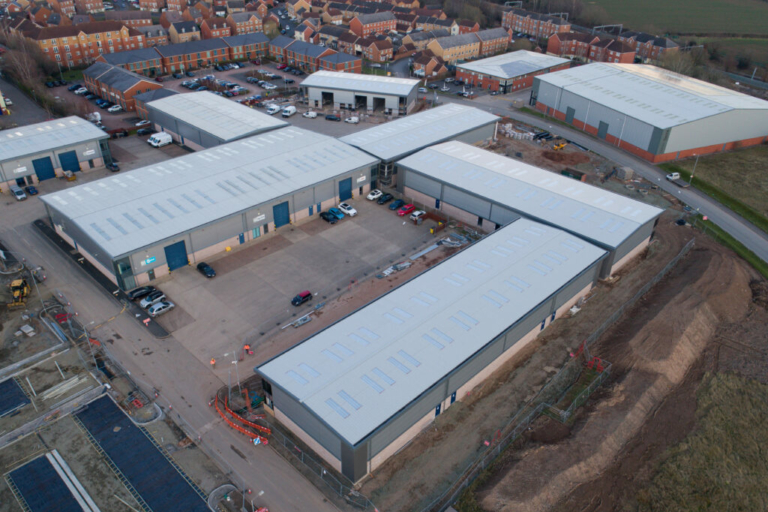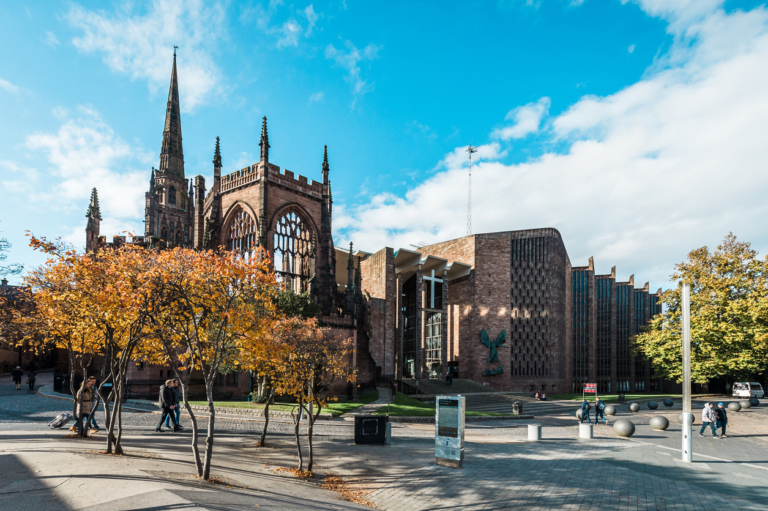LSH: South Coast property market pushes on

Over 50 property sector specialists were given an exclusive snapshot of Lambert Smith Hampton (LSH)’s latest South Coast Market Index Review during a networking event held at Southampton’s Solent University. With some exceptions, trends across the main property sectors are generally positive, says LSH.
LSH’s annual index charts the progress of key commercial property sectors in the areas running along the M27 from Southampton to Havant and up the M3 corridor to Winchester. Boris Johnson’s election as prime minister in December capped a fairly tumultuous year for the property sector and should calm the nerves of developers and investors in 2020.
Graham Holland, head of LSH South Coast, said: “Overall, our view is positive. Unless Boris bombs in a big way, we expect to see growth continue in the commercial property sector. Another strong indicator in January 2020 is that the residential housing market is also picking up. Houses are starting to sell and you need strong residential development alongside commercial.”
The planned redevelopment of the former Toys R Us site near Southampton railway station should demonstrate how commercial and residential property can combine in what will be an ambitious scheme for this ‘gateway’ site. Paul Shuker, director at LSH, said: “We have been involved since the site closed in April 2018 and hope to go forward with a planning application this summer for a mixed-use scheme that will be an economic driver in the city centre, as well as offering 400 residential units. It’s a really exciting project that will be a huge catalyst to improve the area.”
Industrial and logistics sector
It was a strong 2019 for industrial property in terms of the average square footage of space taken up, although the volume of deals was lower than in 2018. “Take-up of 1.84 million square feet was up 4% year-on-year and just above the five-year average,” said Dan Rawlings, associate director at LSH. “Availability increased 4% compared with 2018.”
Elise Evans, associate director at LSH, gave examples: “We saw the Nelson Centre in Portsmouth acquired by Aviva and let on a 10-year lease with strong rental income. At the western end of the region, Amazon moved into a newly refurbished former Biffa site. A variety of sizes are being built speculatively across the region, from Southampton to Chichester, which will encourage churn in the market.”
In terms of rents achieved, Portsmouth overtook Southampton for both new and refurbished sites. The general election result provided a much-welcomed confidence boost, reported Rawlings. “There is more decisiveness and the number of enquiries we are receiving is going up.”
Office sector
Despite 2019’s Brexit uncertainties, LSH’s index found a good level of positive sentiment in the office sector. “We can look forward to 2020 with optimism,” said Andy Hodgkinson, director at LSH.
Although the availability of office space was up 7% in 2019 compared with 2018, the take-up of office space rose 8.2% in 2019.
“Half of all transactions in 2019 were for Grade A space as tenants looked to improve the quality of the offices they occupied. 80% of all deals transacted occurred in Southampton city centre, Lakeside North Harbour in Portsmouth and Whiteley’s Solent Business Park. They all offer good quality, corporate-grade space,” he said.
Winchester and Eastleigh have a critical shortage of supply and therefore experienced limited activity in 2019 as a result. These locations nevertheless are in strong demand should new space be delivered in these areas.
Office rents across the region were up in 2019, boosted by constrained supply and rising demand for better quality spaces.
“There is only 3.3 years of available supply across the region and we are now having serious discussions with occupiers about pre-lets on consented office development sites,” noted Hodgkinson.
Retail sector
It was another “transitional” year in the retail sector, according to Alex Hirst, associate director at LSH. “A number of big names went into administration, others went into Company Voluntary Arrangements (CVAs). We saw the ongoing penetration of e-commerce, as well as the knock-on effect of political uncertainty on consumer confidence.”
However, 2020 could signal an uptick in confidence. “We believe there will be a modest return to growth in 2020. Research predicts 11.8% market growth in the next five years compared with 8.8% in the previous five years,” he said.
With online shopping increasing, retail property vacancy rates in 2019 were the highest since 2015.
“Most retailers recognise the need for an omni-channel approach,” said Hirst. “As much as 30% of non-store sales actually ‘touch’ a store, for example, through ‘click and collect’. Customers often buy something at a store when they collect their online purchases.”
Other trends include the spread of discount warehouse operators, such as Aldi, B&M and The Range, as well as an increase in drive-thru retailers with newer entrants Five Guys and Taco Bell joining established names like MacDonald’s and Costa. “Another notable trend is gyms entering prime site retail space,” observed Hirst.
Hotels sector
Hotels are a key component in the South Coast’s property mix, pointed out Simon Stevens, director at LSH, who said 2019 had been one of the most challenging years for this sector. “The number of property transactions nationally was about one third of what we would ordinarily have expected,” he said. “But 2020 sentiment is a lot more positive.”
The budget, boutique and four-star hotel segments continue to perform well, but mid-market hotels are struggling in comparison. “The mid-market sector faces challenges as margins continue to be squeezed, particularly those that lack a strong brand identity, but we think more opportunities will be coming onto the market as owners who have sat tight until now are looking to make changes to their property portfolios,” he said.
Capital markets
Last year was challenging and filled with uncertainty. Yields on prime industrial along the South Coast stood at 4.25% across both multi and single let, said Matthew Barker, associate director at LSH. “When it comes to this sector, despite value being ever harder to find, investor demand continues unabated.”
He highlighted three factors to look out for in 2020 from LSH’s UKIT publication. “We anticipate the volume of transactions nationally to hit around £55 billion; all property total returns to improve to circa 5%, with industrial continuing to lead performance, albeit to a lesser degree than recent years, with returns of approximately 6.5%. And the value opportunities in retail parks, driven mainly by the potential for alternative uses,” said Barker.
Sustainability issues
With the climate emergency debate grabbing headlines globally, LSH’s event ended on a topical note. “According to UKGBC, the built environment contributes around 40% of the UK’s greenhouse gas emissions, so the property sector is an obvious target for increased regulation as the Government tries to achieve its carbon reduction target,” said Frankie Bryon, head of sustainability at LSH.
She highlighted “low hanging fruit” actions that property owners can take, notably in areas like lighting. “Introducing energy efficient bulbs and energy controls is easy to do and the payback is quite quick,” she said. “We also have to ask whether buildings are being over-specified, as well as look to smarter buildings that reduce energy waste.”
Another major environmental challenge facing landlords is the growth in electric vehicles (EV). “There was a massive increase in EV purchases in 2019 and the Government has brought forward to 2035 the date for banning petrol, diesel and hybrid vehicles. We need to make sure EV charging facilities are available for tenants and employees to support this transition,” said Bryon.
LSH also expects to see greater collaboration between landlords and tenants on renewable energy sources in buildings. “For example, landlords installing solar panels on their buildings and selling energy to tenants. We need to stop viewing sustainability as a business cost and see the commercial gains it can offer everyone,” she said.
South Coast commercial property market in numbers:
• Industrial rents in 2020 are £10 per square foot (2010: £8 psf)
• Office rents in 2020 are £22.50 psf (2010: £18 psf)
• Industrial prime yields in 2020 are 4.25% (2010: 7.5%)
• Office prime yields in 2020 are 5.5% (2010: 7.55%)
• Industrial land in 2020 costs £1m/acre (2010: £650,000/acre).
Source: LSH
For more information or to request a copy of Lambert Smith Hampton’s South Coast Market Index Review email Sarah Monk:












